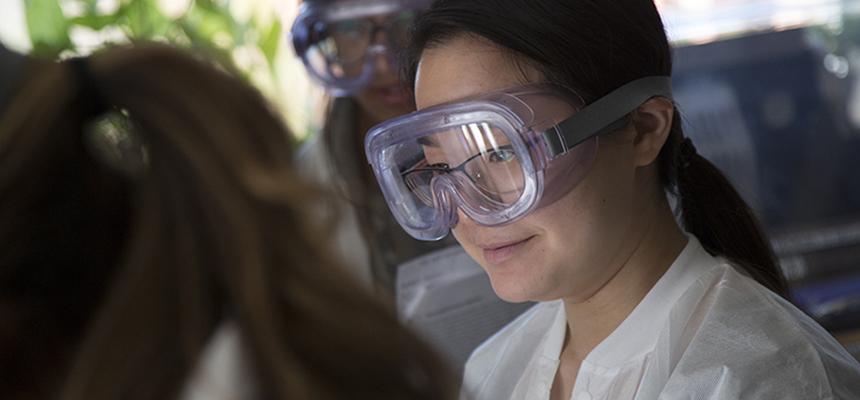Behavioral Neuroscience
Major
Psychology Department
The bachelor's degree in Behavioral Neuroscience at NDMU explores the complex and intriguing relationship between the brain and behavior. Core courses in biology, chemistry, and psychology combine to cover topics including neurobiology, sensation and perception, cognition, genetics, and animal behavior. The program prepares graduates for the growing field of neuroscience. Career pathways can include graduate, medical, or veterinary school as well as immediate opportunities in research.

Program Location
Features of the Behavioral Neuroscience Program
- Research – opportunities to actively design and implement research projects
- Applied Learning – clinical courses feature a skills component to apply concepts learned
- Preparation for Professional Programs – specialized advising offered to prepare for graduate, medical, or veterinary school
- Professional Development – emphasis on leadership, communication, and soft skills valued by employers
- Social Responsibility – current topics explored through the lens of psychology as a discipline (advancement of women, addiction, etc.)
http://catalog.ndm.edu/undergraduate-catalog/school-of-arts-and-sciences/behavioral-neuroscience
Research & Internship Opportunities
One of the hallmarks of the rich educational environment at NDMU is the opportunity to participate in research in your field of interest. Our annual Nancy Kreiter Student Research Day provides the perfect forum to showcase your hard work with a formal research presentation to the NDMU community.
Practicum Experience
In the third or fourth year, behavioral neuroscience majors take everything learned and apply it through a supervised field placement. Practicum placements are selected based on your specific area of interest.
Examples of Practicum Placements
Behavioral Neuroscience Careers
The behavioral neuroscience major prepares graduates for medical and professional schools, masters or doctoral graduate work in the growing field of neuroscience, and immediate career opportunities in research.
Graduate Programs
- Neuroscience
- Psychology
- Medicine
- Pharmacy
- Cognitive Science
Jobs
- Researcher
- Physician (MD or DO)
- Neurologist
- Clinical Psychologist
- Professor


